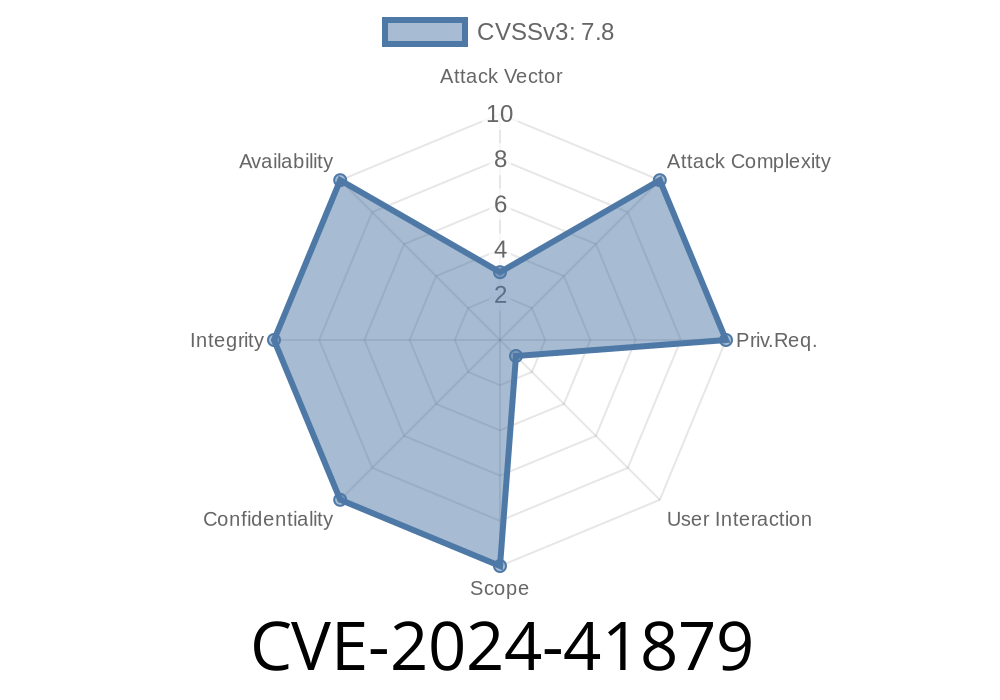In June 2024, a critical vulnerability stunned the PDF world: CVE-2024-41879—an out-of-bounds write bug in Adobe Acrobat Reader. This flaw lurks in versions 127..2651.105 and earlier. If you’re using an old version of Acrobat Reader, attackers could run code on your computer just by tricking you into opening a malicious PDF file. Let’s break down how this happens, how bad it is, and what you need to do.
1. What is CVE-2024-41879?
CVE-2024-41879 is an out-of-bounds write vulnerability. Essentially, this means the software writes data outside the boundaries of what it’s supposed to, which can corrupt memory and allow hackers to run whatever code they want on your system.
2. The Technical Exploit—With Code
Let’s see (in simplified form) how this bug might be exploited. In reality, exploit development is complex, but the core idea often looks like this:
Vulnerable Function (Pseudo-code)
void processPDFObject(char* data, int length) {
char buffer[256];
// The vulnerability: no proper bounds check!
memcpy(buffer, data, length); // BAD: length might be greater than 256!
}
If an attacker crafts a PDF file with an object that tells Acrobat Reader to process 1024 bytes, the program will overwrite memory just past the buffer variable. In a real exploit, this would let malicious code sneak into program memory and execute.
Craft a Malicious PDF
Using tools like pdfminer or custom scripts, attackers make a file with an overlong object to trigger the error.
They send the file via email or host it online.
User Opens the PDF
Acrobat Reader processes it, overruns the buffer, and launches the attacker's code (for example, a trojan, keylogger, or ransomware).
Example Shellcode Injection (Simple Illustration)
# This is for illustration only; actual attack code is complex
shellcode = b"\x90" * 100 + b"\xcc" * 4 # NOP sled + INT3 breakpoints
payload = shellcode + b"A" * (1024 - len(shellcode))
with open("exploit.pdf", "wb") as f:
f.write(b"%PDF-1.7\n")
f.write(payload)
f.write(b"\n%%EOF")
What Should You Do?
- Update Now: Install the latest Acrobat Reader immediately!
6. Learn More—Links & References
- Official Adobe Security Advisory (search for CVE-2024-41879)
- NVD CVE Detail
- Rapid7 Analysis Blog
- Blog: Writing PDF exploits (good background)
Takeaway
CVE-2024-41879 shows how a simple PDF file can lead your computer to disaster if you don’t keep your software patched. Updating Acrobat Reader is the only reliable fix. Until then: Think before you open unexpected PDFs.
Stay safe, and if you have further questions, drop them below!
Timeline
Published on: 08/26/2024 12:15:05 UTC
Last modified on: 08/26/2024 12:47:20 UTC
